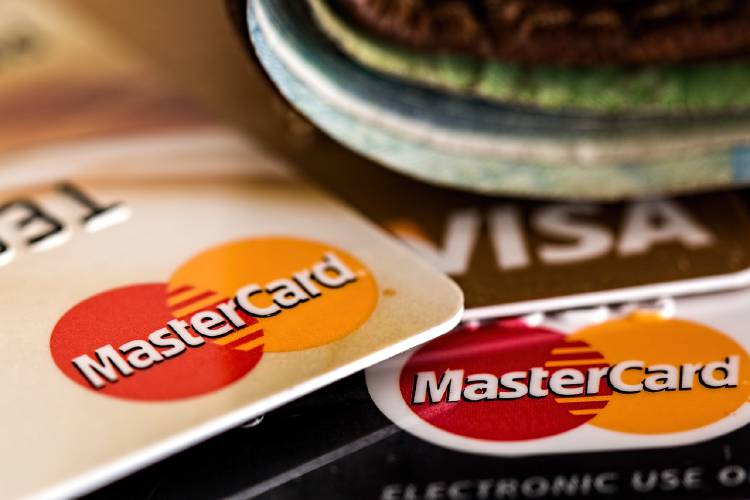Consumer Corner with Anita Wilson: Consumer debt 101: Educational event planned for March

Pixabay. Credit cards, Visa, Mastercard Courtesy
| Published: 02-27-2025 12:20 PM |
Americans have accumulated more debt now than ever before. According to the Federal Reserve Bank of New York, between mortgages, auto loans, credit cards and other loans, Americans had $18.04 trillion in household debt in the fourth quarter of 2024. Of that debt, $1.21 trillion came from credit card balances.
While many consumers pay off their credit card bills each month, those who carry a balance on one or more cards owe just under $6,500, on average. If you fall behind or fail to pay credit card bills, you could receive calls or letters from debt collectors or be sued by a creditor or debt collector. You’ll also be charged interest on your balance, adding to the amount you already owe.
What can you do if you’re currently facing debt collection?
During National Consumer Protection Week, the Consumer Protection Unit is partnering with Western New England University Law School’s Center for Social Justice and the Greenfield District Court Service Center for an educational program, “Consumer Debt: Navigating the Process.” The session takes place at the Greenfield Public Library on Tuesday, March 4, at 5 p.m.
At this event, I will share information about consumer rights related to debt collectors. Retired judge Dina Fine, interim director of the Center for Social Justice, will discuss how to respond to a court case, defenses to a debt collection claim and categories of exempt income and assets.
Mary Klaes, managing attorney at the Greenfield Court Service Center, will share information about the resources and services available there. And we’ll all provide printed resources for those who attend. There will be opportunities to ask questions.
I’ll share some information about debt and consumer rights in this column as well.
If you’re having difficulty paying your credit card balances, don’t ignore the bills. Skipping monthly payments can lead to more problems — late fees, higher minimum payments, losing your ability to use the card, a higher interest rate and damage to your credit score.
Article continues after...
Yesterday's Most Read Articles
 Long-vacant former Faces spot in Northampton gets new tenant
Long-vacant former Faces spot in Northampton gets new tenant
 Here come the sweetness: Four new businesses prepping to open in downtown Northampton
Here come the sweetness: Four new businesses prepping to open in downtown Northampton
 Local ‘Hands Off!’ standouts planned as part of national effort
Local ‘Hands Off!’ standouts planned as part of national effort
 Northampton schools probe staff response to student’s unfulfilled IEP
Northampton schools probe staff response to student’s unfulfilled IEP
 Area property deed transfers, April 4
Area property deed transfers, April 4
 Sabadosa, Velis push for state endometriosis task force to raise awareness about little-known illness
Sabadosa, Velis push for state endometriosis task force to raise awareness about little-known illness
There are steps you can take if you are at risk of falling behind on credit card payments.
First, look at your income and your bills. Make a budget and determine how much you can afford to pay on your credit cards each month. Then reach out to the credit card company, explain why you can’t pay the minimum balance, explain what you can pay each month and when you could restart paying your minimum payments.
A nonprofit credit counselor can help you create a budget and come up with a plan to deal with debt. Many services are free. Ask if there are any charges for the service or if you can apply for a waiver based on your income, military service, or other factors.
To find a nonprofit certified credit counselor, contact the National Foundation for Credit Counseling by calling 800-388-2227 or by visiting their website https://www.nfcc.org.
Be wary of companies that promise to settle your debts for pennies on the dollar, make your debts disappear or even remove them from your credit report. These companies often charge upfront fees and, in some cases, they are scams.
Know that negative credit reporting information cannot be scrubbed from your credit report if it’s accurate, so watch out for false promises.
According to the credit reporting company Equifax, most negative information — late payments, accounts in collections and auto repossessions — can stay on your credit report for up to seven years. There are no quick fixes.
Remember, if it sounds too good to be true, it is.
If you have fallen behind on credit card bills or have stopped paying altogether, you may be contacted by debt collectors on behalf of the credit card company. In that case, it’s important to know that you have rights under the Fair Debt Collection Practices Act and the Massachusetts Attorney General’s debt collection regulations.
Experts recommend that you don’t share your personal or financial information until you’ve gotten confirmation that you owe the debt.
To get confirmation, ask the debt collector to send what is known as a validation notice. This way you can determine if the debt does belong to you. A validation notice should contain:
■The name and mailing information of the creditor and the account number associated with the debt.
■A statement that the communication is from a debt collector.
■Your name and mailing information.
■An itemization of the current amount of the debt including interest, fees, payments and credits and the current amount of the debt when the notice is provided.
■Information you can use to reply to the debt collector, such as if you believe the debt is not yours or if the amount is wrong and an end date for a 30-day period when you can dispute the debt.
Under these state and federal regulations, debt collectors cannot use abusive, unfair or deceptive practices when they collect debts. They cannot pretend to be an attorney or from the government, and they cannot threaten to have you arrested if you don’t pay.
You also have the right to ask the debt collector to stop contacting you — but if you do this, keep in mind that this will not make the debt itself go away. They could still report the debt to the credit reporting bureaus or file a lawsuit.
If you receive notice that you are being sued in court, it’s important to respond. If you don’t, a judgment for the full amount of the debt plus other fees could be awarded to the creditor or debt collector.
More information about the court process will be available at the March 4 presentation, by visiting a court service center, or online at https://www.masslegalhelp.org.
If you need assistance with a debt collection issue or if you’ve been treated unfairly by a debt collector, you may file a consumer complaint with the Massachusetts Office of the Attorney General at https://www.mass.gov/how-to/file-a-consumer-complaint. Legal resources and referrals can be found at https://www.masslegalhelp.org/find-lawyer.
While the Consumer Protection Unit cannot provide individual consumers with legal advice or representation, we can provide information about dealing with debt and debt collection.
You may consult the consumer resources tab at https://www.northwesternda.org/consumer-protection-unit or receive printed materials by calling our office at in Greenfield at 413-774-3186 or Northampton at 413-586-9225.
Anita Wilson is the director of the Northwestern District Attorney’s Office Consumer Protection Unit, which is a Local Consumer Program working in cooperation with the Office of the Massachusetts Attorney General.






 Hatfield Select Board removes elected Housing Authority member
Hatfield Select Board removes elected Housing Authority member Final interviews set for Granby school superintendent candidates
Final interviews set for Granby school superintendent candidates Political analyst to discuss Middle East, new book in western Mass talks
Political analyst to discuss Middle East, new book in western Mass talks Scaled-back DPW project heads to Hadley voters at Town Meeting
Scaled-back DPW project heads to Hadley voters at Town Meeting
